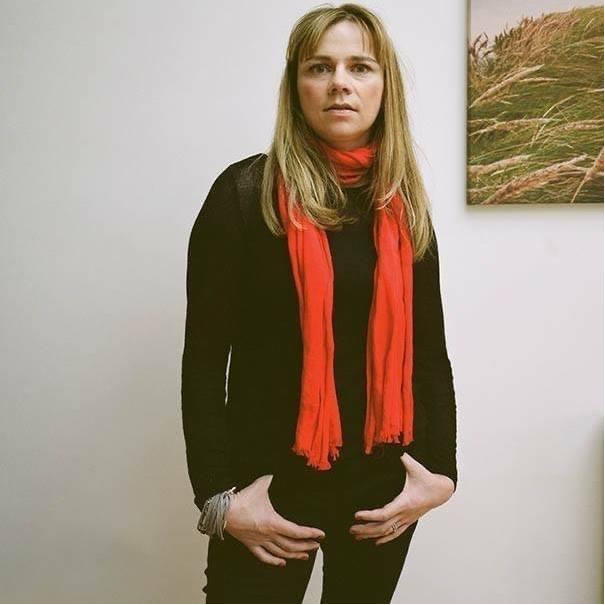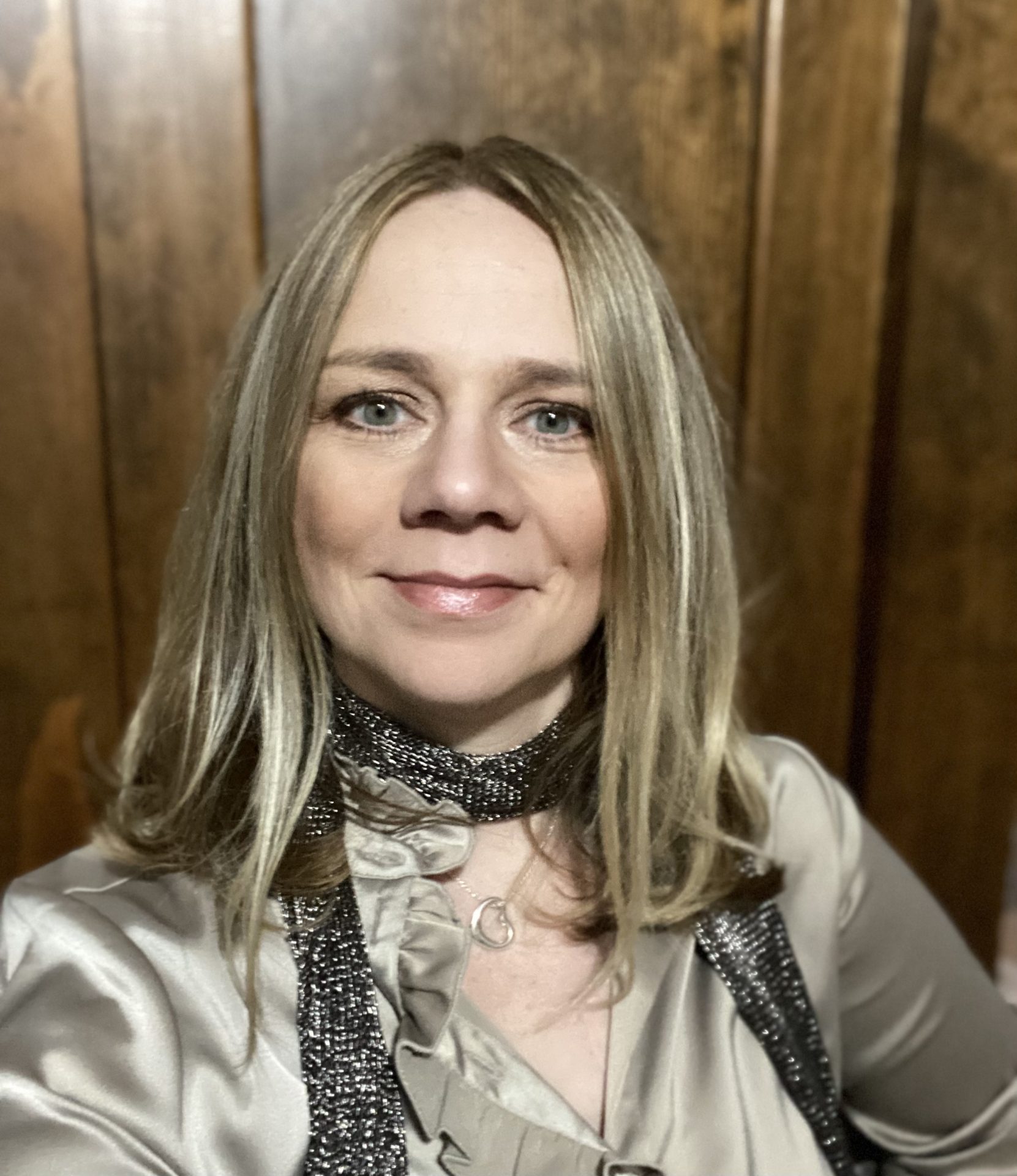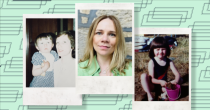In a powerful first-person article for our Frame Of Mind series, Processing, Dr Liza Morton shares the lifelong mental impact of living with a complete heart block.
I arrived in the world with a hole in my heart. When I was just four days old, doctors told my mother that I had a complete heart block: a condition where the electrical signal in the heart is faulty. My heart rate was ‘too low to sustain life’. My chances of survival didn’t look good.
But at 11 days old, in a world-first back in 1978, I was fitted with a cardiac pacemaker. It wasn’t until I was six weeks old that my mother was first able to hold her baby, already scarred. She took me home then, vowing to love me back to health.
The layers of medical trauma began forming young. I dreamed of taking dance classes and horse-riding lessons, but the risk was too high. The same went for playing with other children as they jostled each other in the school corridors or threw balls across the playground. I had to be cautious in case of dislodging a pacing wire and needing to be rushed back to hospital for emergency surgery – for valid reason; by the age of seven, I’d had my ribs broken five times to fit new pacemakers to my heart.

Early pacemakers were prone to problems and I spent a lot of time in hospital as my medical team learned how to adjust the settings. Each one would take it in turns to turn my heart rate up and down with a large magnet, as I lay there nauseous and dizzy, zoning out as I counted the holes on the ceiling.
I didn’t have the words to express how I was feeling. From an early age I learned to block out the distress, refusing to talk about my hospital experiences the moment we drove out of the car park.
But sometimes the terror leaked out in unexpected ways. Once, my mum, brother and I planted cress seeds in old ice cream containers. I was so excited to grow a plant all by myself, and happily slotted the containers underneath the sofa to germinate. When we retrieved our boxes, success: there were rows of neat, green stalks, each topped with two small leaves. I began to scream and couldn’t stop. To me, the cress protruded like the black wire stitches in my skin after surgery. I was repulsed. My mum threw the cress away and we never planted seeds again.
I probably should have been taught healthy ways to express what I was going through, but the truth is that back then, no one knew just what an impact medical trauma could have. There was no psychological support for me or my family. Everyone was just muddling along, trying to do their best to keep me alive. We just got on with it.
I often wondered what ‘normal’ felt like.

Growing up, I hated being pitied, aware of the concern that my health caused others. I learned to hold still for countless, invasive, often painful procedures. I knew that if I protested when having a catheter inserted, cannula placed or stitches removed it would hurt more and take longer. Besides, my life depended on it.But my ‘bravery’ didn’t mean that it didn’t hurt or that I wasn’t frightened. It upset me when people said “you must be used to it”. During each medical procedure, each thing I wasn’t able to do, each moment when I feared for my life, I froze. Looking back, I was dissociating, a common response to trauma.
My worst memories are of being wheeled away by a team in green scrubs to go to the operating theatre, where my mum wasn’t allowed. Post-op I juggled an oxygen mask with a sick bowl, trying not to dislodge the tubes plugged into my body or upset my broken bones as I vomited from the anaesthetic. I just wanted to be left in peace to sleep but doctors needed x-rays, pacing tests, blood pressure, heart rate, temperatures and bloods. It felt relentless. I was bundled about by nurses and doctors to a constant background beep of dozens of heart monitors and alarms, nurses talking, and babies crying. The cleaner bumped my bed with her mop. I was utterly exhausted. My mum sat by my side, rubbing my temple until I fell asleep.
Back then, care was a matter of survival, and that meant my mental health wasn’t a consideration. During my teens, I developed PTSD, experiencing terrifying flashbacks and nightmares about being back in hospital, but there was no treatment available. I avoided hospital dramas on TV (even the theme tune for Casualty makes me feel sick), the smell of bleach took me back to being in a hospital theatre, and even the sound of a cash register would make me jump – it reminded me of a heart monitor alert. I couldn’t relax, constantly on edge and ready for the next medical emergency.
I was plagued by questions about what my adult life would look like. How could I work when I needed to sleep so much? Would anyone ever love me enough to take on the burden of my health and accept my scars?

But another part of me was determined to make the most of my life. I decided to study psychology at university, motivated by a goal of understanding the mental impact of living with a serious medical condition.
Part of training as a counselling psychologist was mandatory therapy. It was there that I finally began to acknowledge my extensive medical trauma. I hadn’t wanted to ever ‘feel sorry for myself’, so had suppressed the pain, which I believe contributed to chronic fatigue and migraines. It was life-changing to find a safe space to process the losses, the compromises and the injustices. I felt grief for the loss of a normal childhood, anger at the unfairness of it all, for feeling silenced and marginalised, sad for little me. I also felt empowered, I found my voice.I used to give myself a hard time for my chronic fatigue, for needing naps and not functioning ‘normally’.I let all of this go.I started to learn to embrace my condition, trust my body, and take care of the little girl with the heart condition, fundamental to who I am.
You may also like
“Autism made me feel like I was on an alien planet – now I’m sharing the reality of neurodiversity on a hit Netflix show”
One of the hardest things about living with a lifelong medical condition is that you have to go through the same traumatic experiences from ‘cradle to grave’ for survival.As an adult, it is seldom recognised that you carry so many layers of trauma each time you walk through a hospital door. Even now, as an adult, each time I go to get my pacemaker checked, or to see my cardiologist or have to go back to theatre, I am a child again.I find it hard to assert myself and I feel powerless, vulnerable and sick to my stomach.
Accessing specialist care in adulthood can also be more challenging, adding to the burden. This is what motivated me to submit a petition to the Scottish Parliament in 2012, asking for national healthcare standards, so no one else would have to go through what I did. That was the start of a new journey for me: into health activism.

At almost 45 years old my prognosis is good. I live a full life, happily married with a teenage son and fulfilling career.
But the scars of medical trauma are still with me. I’ll always depend on a pacemaker and was fitted with my 11th a few years ago. I still have nightmares where I’m back in hospital, attached to medical equipment and waiting on surgery. I can still be triggered by smells and sounds, I get a fright easily and automatically flinch if someone throws something my way. I will always find hospital appointments difficult.
My career as a psychologist, researcher and advocate is motivated by a need to help people understand the true psychological impact of living with a serious medical condition from childhood.Medical trauma is often left out of conversations about adverse childhood experiences (ACEs) and while we now know that around 50% of adults with congenital heart disease experience anxiety and depression, support remains poor. So much more could – and should – be done, and I’m on a mission to make that happen. The first step? Making people understand that medical trauma is real, and it stays with you.
Dr Liza Morton is the co-author of new book Healing Hearts And Minds: A Holistic Approach To Coping Well With Congenital Heart Disease, with Tracy Livecchi, LCSW (£14.99, Oxford University Press, New York), out now.
Images: courtesy of Liza Morton
Source: Read Full Article
